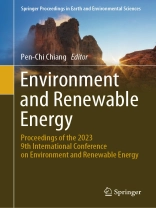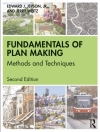This book presents peer-reviewed papers of the 2023 9th International Conference on Environment and Renewable Energy (ICERE 2023), which was held in Hanoi, Vietnam, during February 24–26, 2023, in hybrid mode (both online and in-person). The conference was sponsored by the Hanoi University of Science and Technology, Vietnam, and facilitated exchanging the latest and most advanced information between scientists and engineers in the fields of environment and renewable energy. The book focuses on research related to environmental management; water resources management; ground water remediation; water treatment and reclamation; solar, biomass and wind energy; nuclear energy engineering; renewable energy grids; environmental impact assessment; and renewable energy utilization, among other topics. This volume serves as an excellent reference for researchers and engineers seeking to understand the latest technological developments in these fields.
İçerik tablosu
Study on Soil Temperature Recovery Prediction Model of Ground Source Heat Pump.- A Comparative Study of the Transcritical CO2 Cycle and the Organic Rankine Cycles Using R245fa and Low GWP Refrigerants in Low Temperature Geothermal Utilization.- Numerical Simulation of the Influence of Air Space Thickness in Heat Transfer of a High-Performance Glazing System.- Impact of Location on Hybrid Renewable Energy System Design Optimization: A Case Study for Two Cities of USA.- Stability of a Hydroxyapatite-supported Nickel Catalyst in Dry Reforming of Methane.- Renewable-based Energy Mix Optimization for Weak Interconnected Communities.- Pyrolysis Kinetics of Microalgae Residues – A Comparative Study on DAEM Using Different Distribution Functions.- Low-Cost Anodic Material Made of Rice Husk Charcoal and Acrylic Paint for Soil-Based Microbial Fuel Cells.- Analysis of the Effectiveness of Lepidium Meyenii, Solanum Tuberosum and Musa Paradisiaca Species as Natural Coagulants in the Treatment ofthe Cunas River – Peru.- Geological Factors Influencing River Morphological Changes: Implications in the Agricultural Sector.- Assessment of Particle Filter Technique for Data Assimilation in the Forecasting of Streamflows for the Tocantins River Basin in Brazil.- Development of a Biodegradable Detergent Based on Quinoa as an Alternative to Minimize Eutrophication.
Yazar hakkında
Prof. Pen-Chi Chiang began his teaching and research activities at the National Taiwan University after he obtained his Ph.D. degree from the Department of Civil Engineering, Purdue University, USA, in 1982. Currently, he is a distinguished professor of the Graduate Institute of Environmental Engineering, National Taiwan University; a director of the Carbon Cycle Research Center of National Taiwan University; a board-certified environmental engineer of the American Academy of Environmental Engineers and Scientists (AAEES); a fellow of the Water Environment Federation (WEF); and a representative of the American Academy of Water Resources Engineers of the American Society of Civil Engineers (ASCE). He has been actively involved in international and national academic associations and has served as a member of the board of directors (1987–2007), executive committee (2001), and academic committee (2008–present) of the WEF; the chairman of the International Association on Water Quality Specialized Conference (2001); the president of the Chinese Institute of Environmental Engineering (2004–2006); and a member of the American Institute of Chemical Engineers Local Chapter (2009–present). Prof. Chiang is known for his work in physicochemical treatment such as carbon adsorption and membrane and ozonation processes. He has published more than 200 papers in the above areas since 1990.












